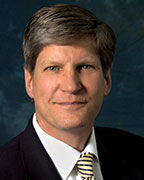
Power of Participation
Why a Fishbowl is a Good Thing
They say knowledge is power. And the marketplace power that comes from knowing what work is under way in a standards developing organization can be obtained only if that organization is transparent.
The WTO/TBT1 committee says that in a transparent SDO, "All essential information regarding current work programmes, as well as on proposals for standards, guides and recommendations under consideration and on the final results should be made easily accessible."
ASTM International is a virtual fishbowl. Anyone - member and nonmember alike - can access Standards Tracker, an online notification service that provides information on newly approved standards, actions on existing standards and work items. ASTM provides drafts on request and encourages input from materially affected interests.
The decision to be part of a standards project is based on knowing what already exists, what is being undertaken or what is not being undertaken, the direction in which a technology is headed, whether or not that technology is applicable to one's business, one's culture, society or level of development, and whether or not one has a "materially affected interest." The decision to participate in a standards project begins with knowledge - the first encounter with power in the standards development process.
The second encounter comes with participation in a standards body that embraces openness. Openness means nondiscrimination. As practiced in ASTM International, nondiscrimination means that anyone can participate in the ASTM process of developing standards. Openness, as defined by the WTO/TBT committee, states that bodies that develop international standards should be open on a nondiscriminatory basis to relevant bodies of at least all WTO members. This includes openness without discrimination at the policy development level and at every stage of standards development. ASTM International is open to other bodies and to individuals as well.
This is an enormous expansion of the WTO/TBT definition. One is not required to be a member of a body of any kind or meet any prerequisite to become a member of ASTM International, to sit on a technical committee, to initiate a standards project, to propose a modification to an existing standard, to have a voice, to vote, to bring about change to a way of doing something that can affect lives all over the planet. This is the power of participation in an organization that is open. Openness conveys that power to any and all who wish to possess it.
The ASTM International board of directors, the body that decides policy, is as open and nondiscriminating as its technical committees. Standards professionals from ASTM's ranks, as well as those from countries all over the world, leave their imprints on ASTM's most important decisions. Men and women with domestic and international perspectives, and those from other standards bodies and systems, bring their wisdom and varied histories to every change of course and every measure of progress made by the ASTM International organization. The power to govern is as available and nondiscriminatory as is the power to create a standard, whether it belongs to the chairman of a task group, a subcommittee, a technical committee, a governing committee such as the Committee on Standards,2 or the ASTM board of directors.
But perhaps the highest level of power is the personal power that is to be attained through participation in the development of a standard. The process of standardization is not only the development of a technical document that makes the world a better, safer place in which to live. It can also be an intensely personal undertaking - an investment in a family business, the recognition of a process developed through years of education and research, the documentation of an invention, the fulfillment of a goal to prolong life or preserve an environmental treasure, the immense satisfaction of advancing a life's work into the public realm and the tremendous rewards of collaborating with peers met only through a technical committee. Standardization is work with a purpose and a commitment to something that impacts - in a significant way - our families, businesses and careers, and people around the world we've never met and will never meet. That kind of power is intangible, great and indescribable.
We hear the words openness and transparency and participation so often that they can sometimes lose their potency. But if we stop to think deeply about what these words mean in the day-to-day process of developing standards, of belonging to an organization like ASTM International, we can see what priceless, enormous values they convey, what power is behind them.
References
1. World Trade Organization/Technical Barriers to Trade
2. And other standing committees of the ASTM International board of directors, such as the Committee on Publications and the Committee on Technical Committee Operations.
James A. Thomas
President, ASTM International
 SN Home
SN Home Archive
Archive Advertisers
Advertisers Masthead
Masthead RateCard
RateCard Subscribe
Subscribe Email Editor
Email Editor